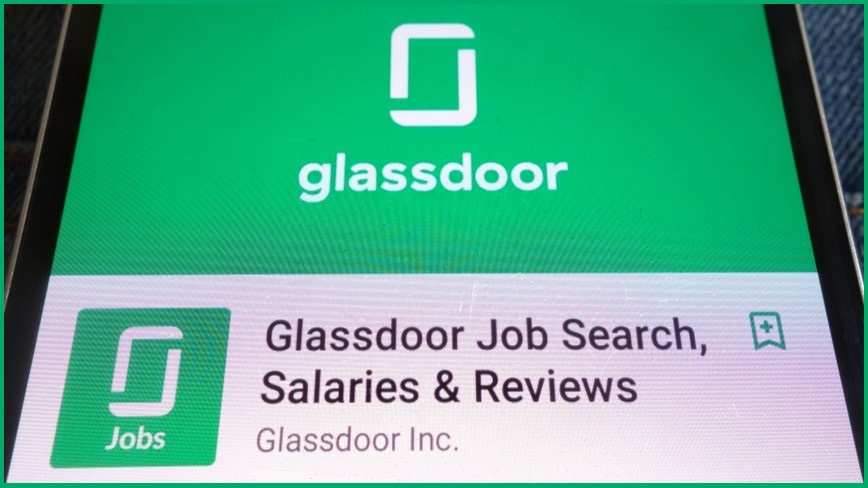Workplace review site Glassdoor has long been a must-visit site for workers to read honest reviews of workplaces but a recent move by the company has thrown its future into jeopardy.
Glassdoor’s new policy of collecting the real names and employment details of users has drawn the ire of privacy advocates and users, with some reporting their personal information being collected by the company without their consent.
The platform has long-allowed users to sign up anonymously and post reviews of their current or former employer.
But the company has now altered its sign-in process to require individuals disclose their full name, job title, and employer before being able to use the platform, with existing users also required to provide this information to continue posting, as Wired reported.
The policy change has led to privacy concerns as to whether this information could be linked to reviews posted, the dangers of a data breach, and the likelihood of companies trying to obtain the identity of reviewers through legal avenues.
In an article for Fortune, Glassdoor CEO Christian Sutherland-Wong said that “anonymous posts on Glassdoor will always stay anonymous”, and that the further details now required by the company are for its new Community platform.
“To make Community work, we ask users to share their name, job title, and company name with Glassdoor during the sign-up process,” Sutherland-Wong said.
“This information helps users seamlessly engage in Community however they choose.
“While reviews, ratings and salary information posted by users on Glassdoor have always been and will always be anonymous, Glassdoor Community is designed to provide users with a choice: to post anonymously with their job title or employer name, or to use their full name.”
The changes stem from Glassdoor’s acquisition of work-related discussions platform Fishbowl in 2021.
In contrast to Glassdoor at the time, Fishbowl requires users to verify their identities before posting, and as part of the deal, all Glassdoor users were signed up for an account on the new platform.
This led to Glassdoor updating its terms of use to require users to verify their real names to continue using the platform, after previously only needing to hand over an email address.
Reviews can still be posted anonymously on Glassdoor once a user has verified their name privately.
A Glassdoor help page says that this is required to “ensure that…users can engage in authentic, candid conversations with other professionals, co-workers and company leaders in a safe space”.
Verification vs anonymity
This has led to significant privacy concerns however, with Surveillance Technology Oversight Project founder Albert Fox Cahn telling Wired that Glassdoor users will no longer be as anonymous as they once were.
“You can’t both be verified and anonymous,” Cahn told Wired.
“You can’t both be a social network and a confidential reporting space.
“You can do one of those well, or you can do both of them badly.”
Glassdoor’s terms of service state that the company “cannot guarantee your anonymity” and that users should “understand this risk before submitting content to the services”.
The company said that it cannot be fully sure that users are who they say they are when posting on the platform or reviewing a company.
“Considering the reality of our digital age, we’re unable to fully confirm our users’ identities, the truthfulness of their contributions, or their employment status,” the company said.
Data linkage
There have also been reports from users that their real names have been added to their Glassdoor profiles without their consent.
One user told TechCrunch that Glassdoor added her name and the city she lives in to her profile after she had an email exchange with a customer support staff member.
She said she never provided her name when she signed up to the platform, and claimed the company got her details from the email exchange.
Glassdoor said that she was “required” to leave her name in her profile but that it won’t be included in any previous anonymous reviews.
There have been numerous attempts by negatively-reviewed companies to force Glassdoor to reveal the identities of the users behind them.
Electronic Frontier Foundation attorney Aaron Mackey has worked with Glassdoor on a case like this, and said the company has previously been an “industry leader” in protecting users’ identities.
“We hope that Glassdoor will continue to defend its users’ anonymity in court,” Mackey told TechCrunch.
“But the latest news regarding Glassdoor’s policies raises concerns about whether users may be identified even if their information is never sought by an employer or law enforcement.
“Those policies also appear to conflict with, or at least be in tension with, Glassdoor’s goal of encouraging employees to candidly review their employers.”
In 2022, a New Zealand toy company successfully used the courts to force Glassdoor to reveal the identities of former employees who had left negative reviews on the service, in order to file defamation cases against them.










